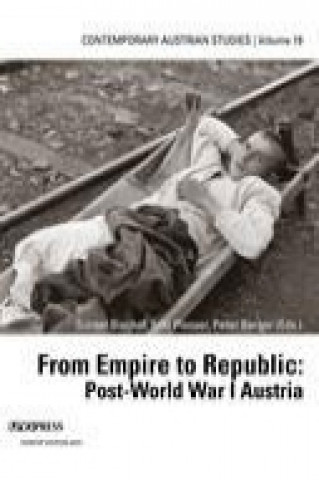
Kód: 12779542
From Empire to Republic: Post-World War I Austria
Autor Günter Bischof, Fritz Plasser, Peter Berger
The breakup of the Habsburg Dual Monarchy and the redrawing of the political map of East Central Europe constituted a major experiment in "destroying the old, and creating the new" (O. Hwaletz). Historians are more inclined to stu ... celý popis
- Jazyk:
 Angličtina
Angličtina - Väzba: Brožovaná
- Počet strán: 448
Nakladateľ: Books on Demand, 2010
- Viac informácií o knihe

Mohlo by sa vám tiež páčiť
-

One of our Thursdays is Missing
10.65 € -21 % -

View from Penthouse B
15.68 € -3 % -

Good Food Good Mood Cookbook
17.63 € -13 % -

Open Your Heart
13.93 €
Darujte túto knihu ešte dnes
- Objednajte knihu a vyberte Zaslať ako darček.
- Obratom obdržíte darovací poukaz na knihu, ktorý môžete ihneď odovzdať obdarovanému.
- Knihu zašleme na adresu obdarovaného, o nič sa nestaráte.
Viac informácií o knihe From Empire to Republic: Post-World War I Austria
Nákupom získate 82 bodov
 Anotácia knihy
Anotácia knihy
The breakup of the Habsburg Dual Monarchy and the redrawing of the political map of East Central Europe constituted a major experiment in "destroying the old, and creating the new" (O. Hwaletz). Historians are more inclined to study the rise of empires than their demise and aftermath. The eighteen essays in this volume offer fresh perspective and innovative scholarship on the difficult transition from empire to republic for the small state of Austria, newly created by the Allied peacemakers in Paris in 1919. These essays also deal with complex challenges of nation building after a major war as well as the ambiguity inherent in the creation of new institutions in politics, economics, social life and culture. In 1919 the government of the instable and fledgling Republic of Austria faced the task of integrating more than a million of returning war veterans and taking care of 110,000 wounded veterans returning from the frontlines. The government was also confronting revolutionary turmoil in the streets of Vienna, a neartotal collapse of the agricultural and industrial economies and near-mental breakdown from the trauma of defeat. Hyperinflation produced a financial crisis in the early 1920s and major economic challenges in the banking and industrial sectors. The redrawn borders produced loss of German ethnics and major demographic shifts. Pan-Germanism was an ideology popular in all political camps. "Austrians" - no longer dominant in a vast empire - were searching for a new identity. After four years of war, Austrians had to confront defeat and constructed a national memory from painful personal remembrances. Most families were dealing with family members returning from a long and destructive war with limbs missing and souls deranged. In spite of ideological conflict between the major political camps, a national cultural revival ensued and new educational institutions were born. Cover photo: A severely wounded soldier from the battle on the Isonzo front awaits transport to the hospital on 23 August 1917. (Photo courtesy of Picture Archives of the Austrian National Library)
 Parametre knihy
Parametre knihy
33.42 €
- Celý názov: From Empire to Republic: Post-World War I Austria
- Autor: Günter Bischof, Fritz Plasser, Peter Berger
- Jazyk:
 Angličtina
Angličtina - Väzba: Brožovaná
- Počet strán: 448
- EAN: 9783902719768
- ISBN: 3902719761
- ID: 12779542
- Nakladateľ: Books on Demand
- Hmotnosť: 688 g
- Rozmery: 233 × 159 × 33 mm
- Dátum vydania: 08. October 2010
Obľúbené z iného súdka
-

Dune
13.11 € -

Haunting Adeline
30.85 € -

Berserk Deluxe Volume 2
52.79 € -

White Nights
3.58 € -24 % -

Powerless
12.50 € -4 % -

Atomic Habits
15.98 € -15 % -

Dune Messiah
9.01 € -20 % -

Berserk Deluxe Volume 3
53 € -

One Day
12.60 € -13 % -

Berserk Deluxe Volume 1
44.49 € -13 % -

Iron Flame
16.29 € -19 % -

Surrounded by Idiots
11.78 € -21 % -

Harry Potter and the Prisoner of Azkaban (Minalima Edition)
27.88 € -32 % -

Gravity Falls Journal 3
22.14 € -

Heaven Official's Blessing: Tian Guan Ci Fu (Novel) Vol. 1
21.52 € -

The Creative Act
26.24 € -5 % -

Dune
9.73 € -19 % -

Hunting Adeline
31.88 € -

A Little Life
17.52 € -

Children of Dune
8.81 € -22 % -

Heaven Official's Blessing: Tian Guan Ci Fu (Novel) Vol. 2
18.96 € -9 % -

Bungo Stray Dogs, Vol. 8 (light novel)
18.04 € -

Percy Jackson and the Olympians 5 Book Paperback Boxed Set
47.87 € -

Solo Leveling, Vol. 1
22.96 € -
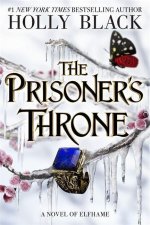
The Prisoner's Throne
11.47 € -4 % -

Court of Thorns and Roses
9.32 € -22 % -

Cry Baby Coloring Book
10.96 € -3 % -
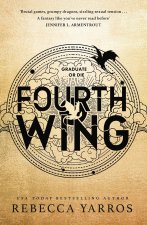
Fourth Wing
16.70 € -16 % -

Icebreaker
9.22 € -18 % -

Berserk Deluxe Volume 6
48.90 € -4 % -

Avatar, the Last Airbender: The Kyoshi Novels (Box Set)
27.57 € -33 % -

The 48 Laws of Power
26.96 € -1 % -

House of Leaves
23.26 € -4 % -

Twisted Lies
9.83 € -24 % -
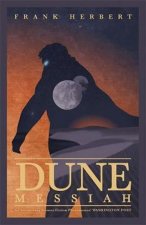
Dune Messiah
10.04 € -31 % -

No Longer Human
17.01 € -

48 Laws Of Power
22.65 € -5 % -

Twisted Games
9.42 € -22 % -

Caraval Paperback Boxed Set
39.87 € -8 % -

Solo Leveling, Vol. 2
22.44 € -
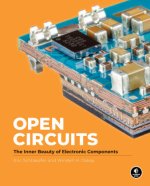
Open Circuits
34.54 € -16 % -

Berserk Deluxe Volume 5
51.46 € -

Heaven Official's Blessing: Tian Guan Ci Fu (Novel) Vol. 3
19.78 € -5 % -

Berserk Deluxe Volume 4
46.64 € -9 % -

Court of Mist and Fury
9.32 € -20 % -

SOLO LEVELING V08
22.44 € -
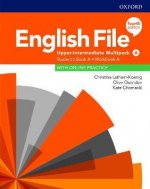
English File Upper Intermediate Multipack A (4th)
22.24 € -

CHAINSAW MAN V14
11.27 € -14 % -

Before the Coffee Gets Cold
9.12 € -16 %
Osobný odber Bratislava a 2642 dalších
Copyright ©2008-24 najlacnejsie-knihy.sk Všetky práva vyhradenéSúkromieCookies



 21 miliónov titulov
21 miliónov titulov Vrátenie do mesiaca
Vrátenie do mesiaca 02/210 210 99 (8-15.30h)
02/210 210 99 (8-15.30h)